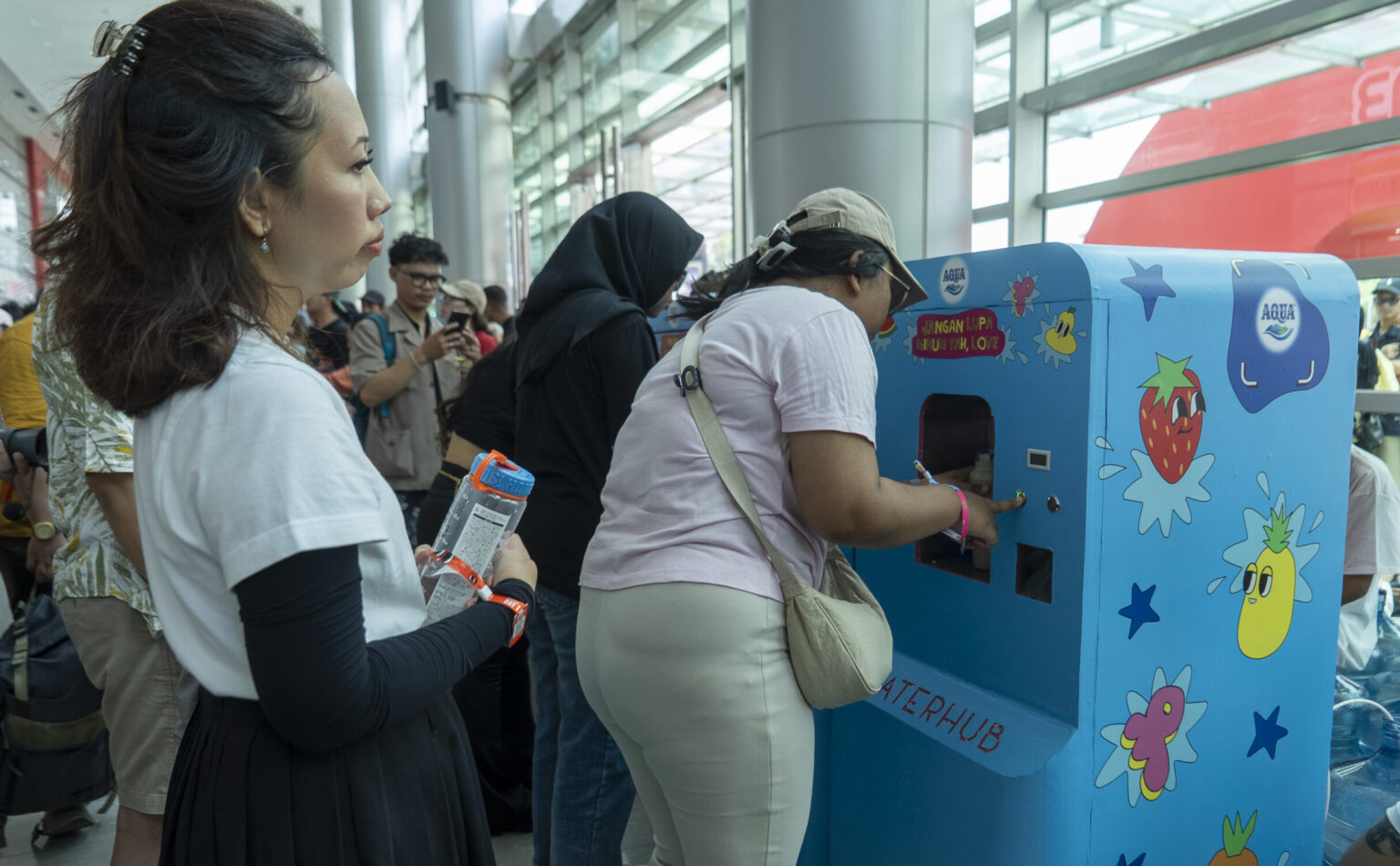Michael Hadiono, one of the co-founders of aquaculture startup Ternakin, is watching workers scoop thrashing fish from a large net into yellow crates.
He is delighted with their size: most of the fish will easily produce 400g fillets, the minimum weight required by the factories.
“Pangasius require spacious conditions to remain health,” Michael explains. “Overcrowding negatively impacts their appetite and survival.”
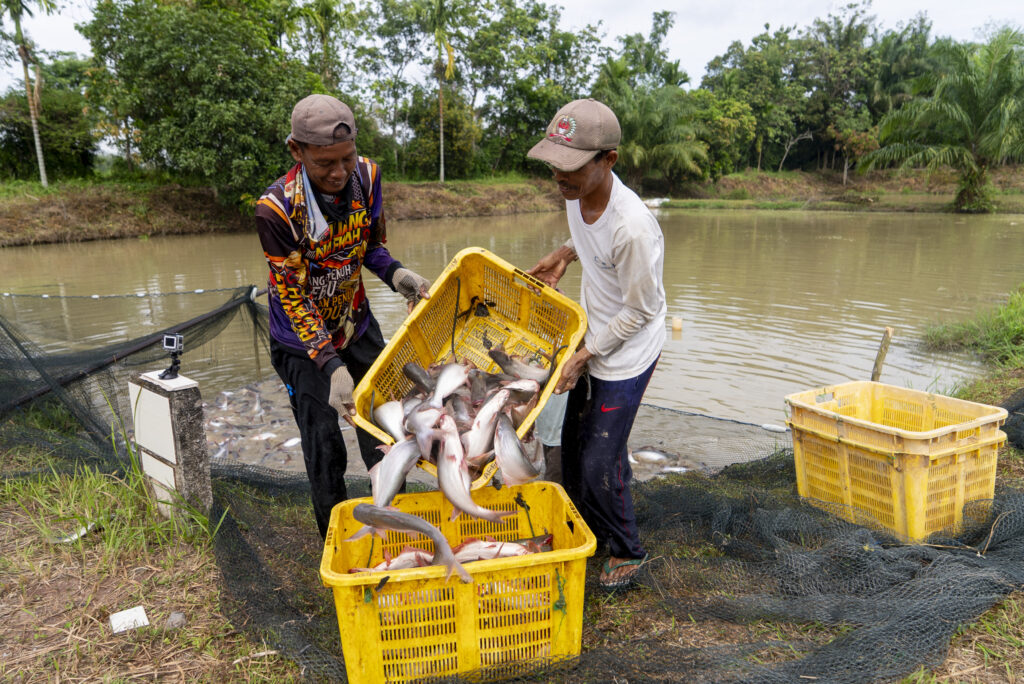
Most of these fish will be loaded onto trucks and sent to the factories, where they will be filleted and sold to restaurants.
Ternakin also supplies fish to the Prabowo Government’s free meal program for children and pregnant women, which aims to address stunting and lack of nutrition.
“We strive to support our partner farmers by opening up market access that is difficult for them to reach,” says Ternakin’s Chief Operating Officer and Co-founder Indriawan Widya Utama.
“We work to unlock partnerships with major distribution networks in big cities as well as hotel, restaurant and catering chains, with the hope that that the products our farmers produce can gain greater value.”
This fish farm in Belitang is co-owned by the landowner, Eko, and Ternakin, which works with smallholder fish farmers to improve their yields, lower feed costs and increase their income.
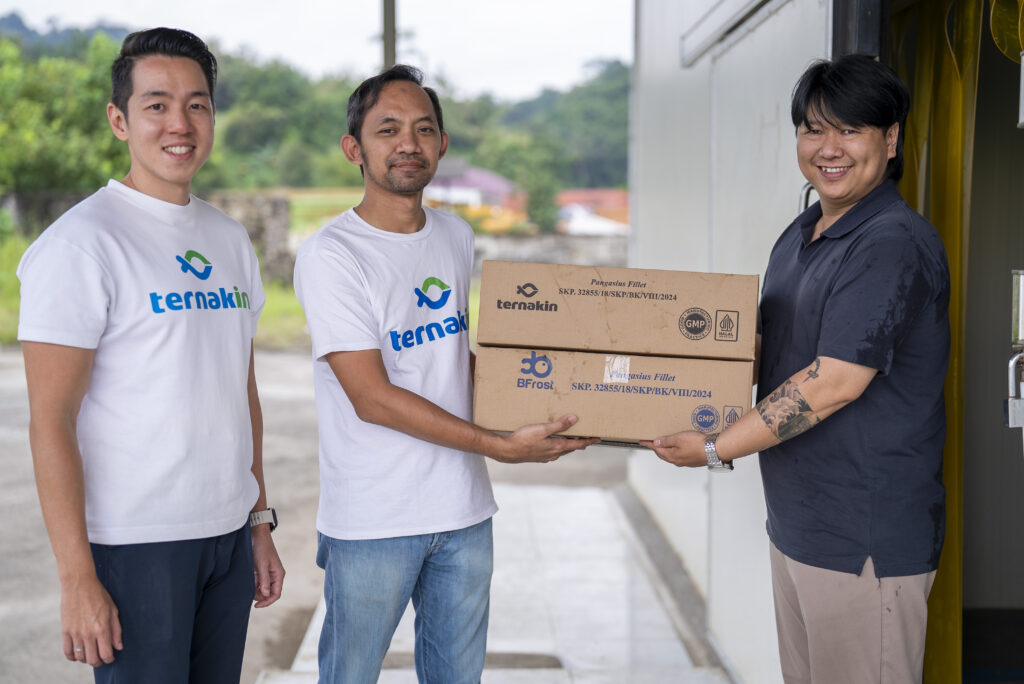
“Indonesia has enormous potential in fisheries, yet we’ve seen firsthand how small-scale fish farmers … struggle to access stable markets, working capital and proper technical support,” Michael says.
Everyday Eko and his crew monitor the ponds, taking note of fish deaths, sample fish sizes, feed amounts and fish numbers.
Initially Ternakin attempted to teach farmers to upload the data on an app, but when this proved difficult, the startup suggested they stick to recording the information on paper.
“Many farmers are not yet tech savvy,” Michael says.
Instead, they switched to WhatsApp, a messaging platform deeply entrenched in everyday life in Indonesia.
Now farmers photograph the documents and send them via WhatsApp to Ternakin, which uploads and analyses the data and then supplies feed and baby fish.
“In addition, we provide technical assistance to our aquaculture partners, so their yields become more productive and efficient, making their operations more sustainable and promising for their families’ future.”
Ternakin is one of five Indonesian startups awarded a KINETIK Sweef Fellowship, which supports the growth of businesses in the green economy.
Each KINETIK Sweef Fellow receives training in strategic planning, sustainability, impact measurement, gender inclusion, financial management and leadership.
“We chose to work with Ternakin because they’re tackling three big challenges at once – food security, climate resilience and rural livelihoods,” says Stefani Vivian, Assistant Vice President Program Investments at Sweef Capital.
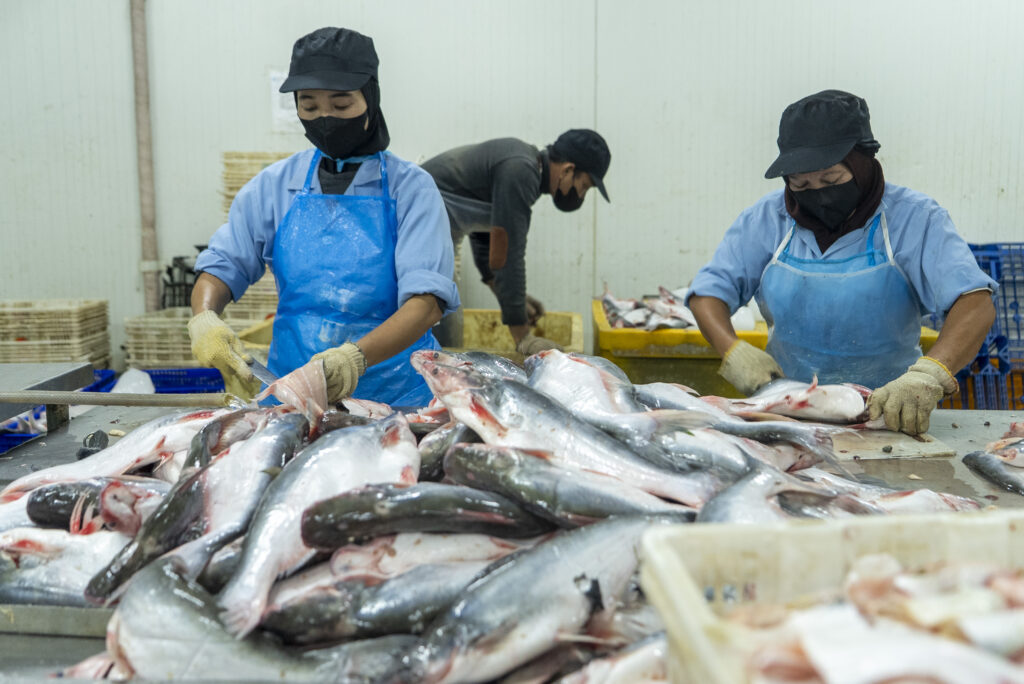
“Our technical assistance is focused on strengthening their planning and budgeting so they can grow sustainably. We’re also helping them set up a system to track impact, not just how much fish they produce, but the environmental and social benefits too.”
Stefani says a large part of the KINETIK Sweef Entrepreneurs’ Program’s support is gender inclusion.
“Aquaculture has traditionally been male dominated, but Ternakin is already involving women in hatcheries and processing plants. We’re helping them embed gender inclusion in their operations as they grow.”
Ade Rahma is the manager of a Ternakin hatchery that supplies fish farms with fingerlings (young fish).
“It’s true there aren’t many women in fisheries,” she says.
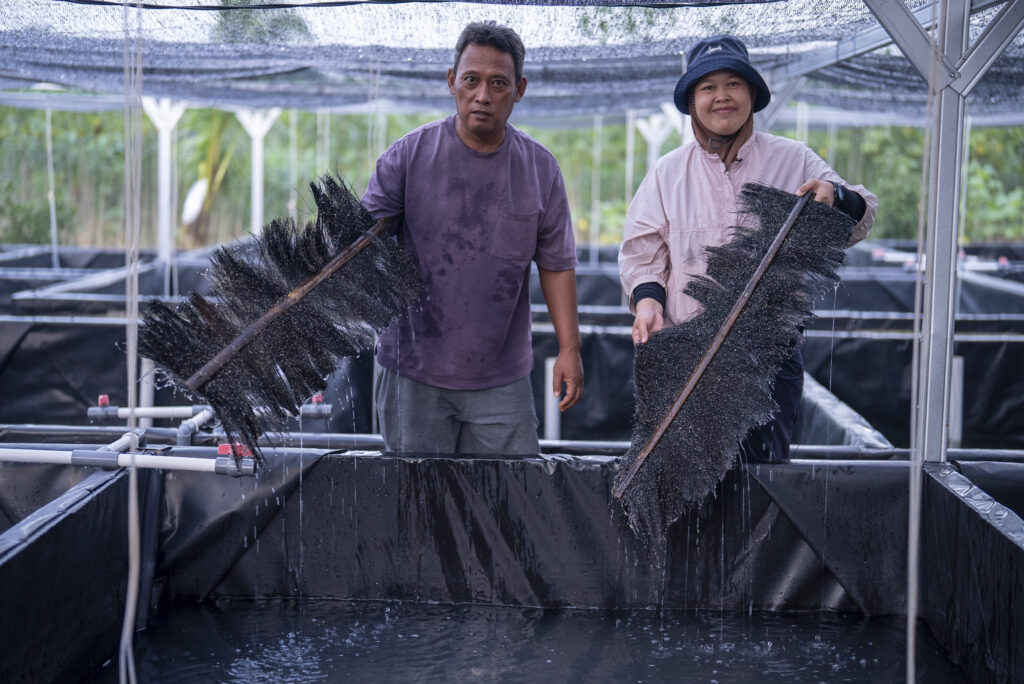
However, Ade points to high profile women in the aquaculture industry such as Susi Pudjiastuti, the outspoken former Minister of Marine Affairs and Fisheries and founder of a seafood processing and export company.
“For me, being here is about showing that equality isn’t just something to demand, it’s something we actively work to achieve,” Ade says.
Indiawan says Ternakin is working to make diversity a core value across every part of the business, including the supply chain.
At seafood processing company PT Bima Harapan Panca Utama in South Lampung, which fillets Ternakin’s fish, 85 per cent of employees are women.
Director Rian Wiguna says he prefers to hire women because of their skills filleting fish.
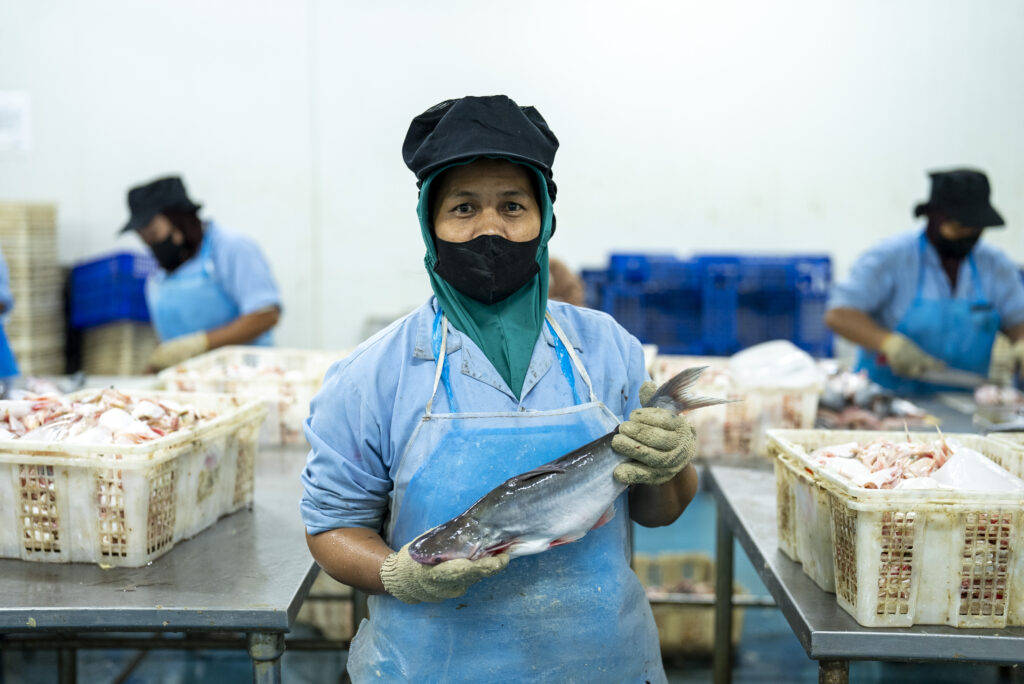
“Cuts need to be consistent, not messy or wasteful,” he says.
Erpriani, the Head of Production, says most of the women were full time housewives until the factory opened in 2021.
“With the company’s arrival, we gained the chance to contribute financially to our families,” she says.
In a large shed near the fishponds in Belitang, farm workers are using shovels to comb leftover fish guts, skin and bones – which have been dried in the sun – into piles of a powdery flour.
This is then fed into a pelletiser to create fish feed, which is used in the ponds.
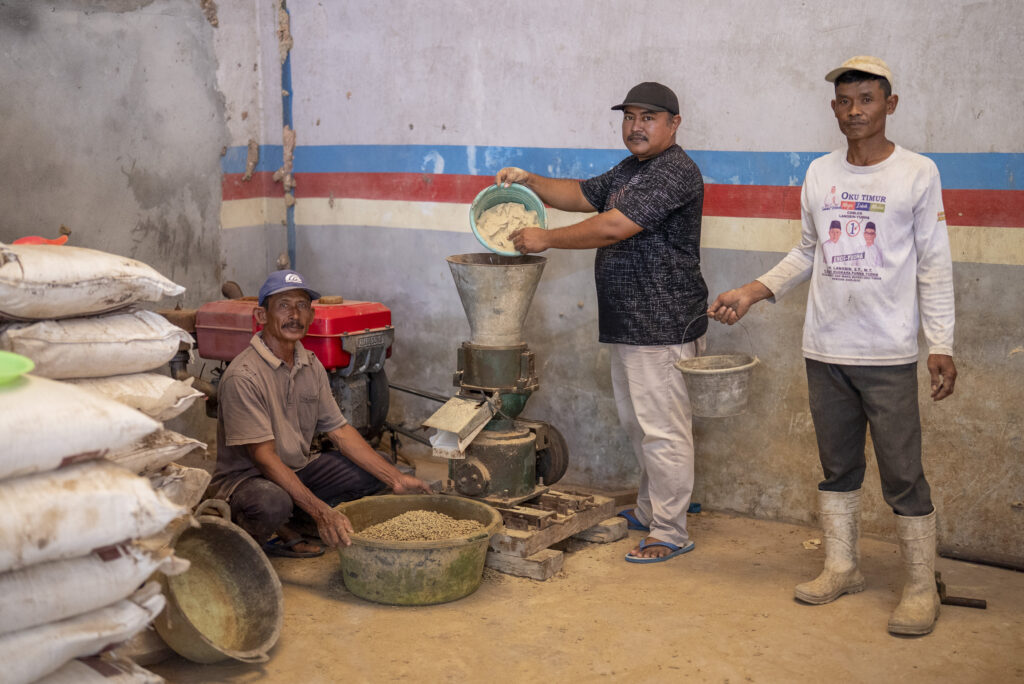
Ternakin is also working on turning fish waste into other products such as krupuk (fish crackers) and fertiliser.
“In this way, waste that previously had no value is transformed into value-added products, fostering a circular economy that reduces waste, improves farming efficiency and creates new job opportunities,” Michael says.
Stefani says the KINETIK Sweef Entrepreneurs Program is teaching Ternakin how to track its environmental outcomes without slowing operations.
Its technical assistance has showed Ternakin how to document its sustainability practices, making the company more attractive to impact investors.
“We started from a very commercial mindset – profit was always the driver,” Michael says.
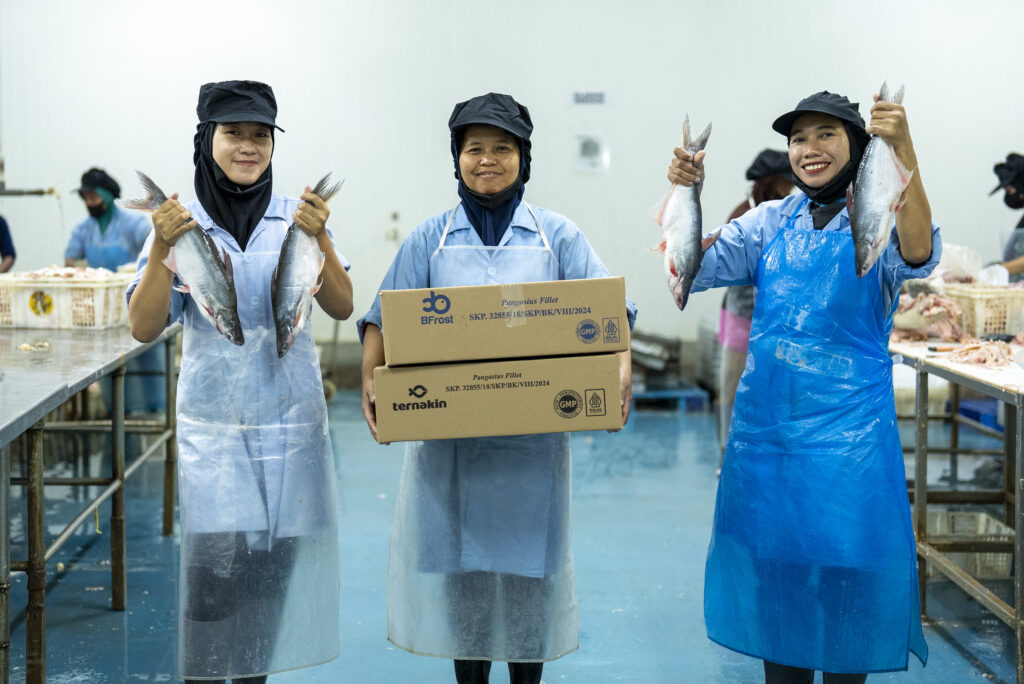
“The program has really pushed us to put structure around impact and sustainability, which is something we hadn’t prioritised before.”
Ternakin has also learnt how to improve its financial modelling to include detailed revenue, profit margin improvement and debt/equity financing projections that enables the company to confidently present the opportunities during investor meetings.
The KINETIK Sweef Entrepreneurs’ Program is the most hands-on of all the programs Ternakin has joined, Michael says. “It’s technical, practical and really tailored to what we need.”
Stefani says the technical assistance has stopped Ternakin underselling itself.
“The new model shows not just where the business is today, but how far it can go – and that changes the whole conversation with investors.”

